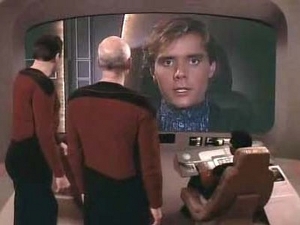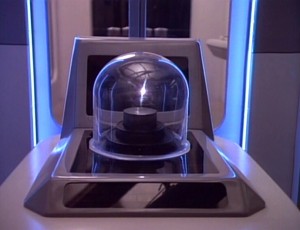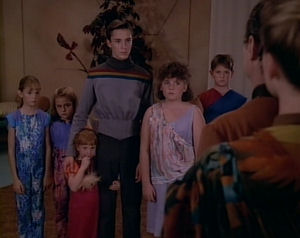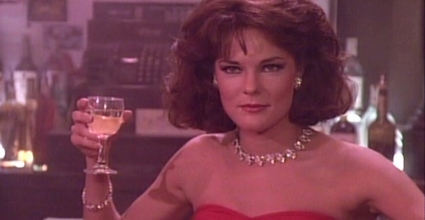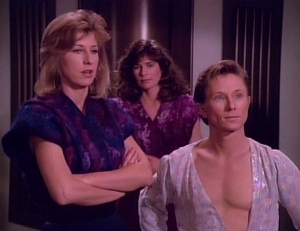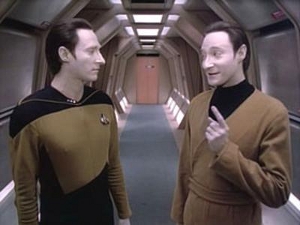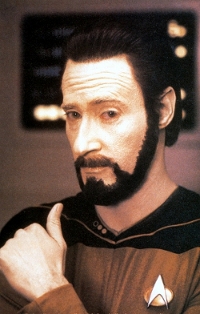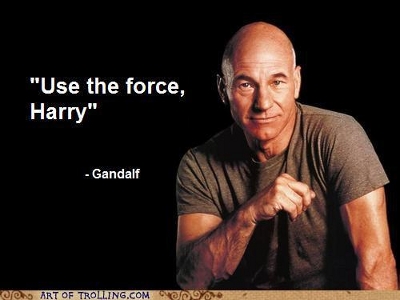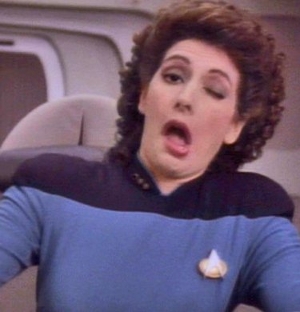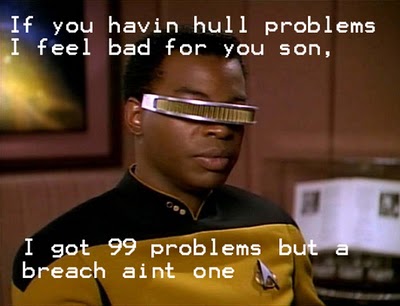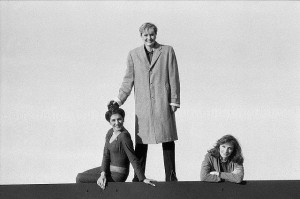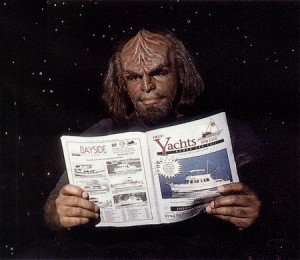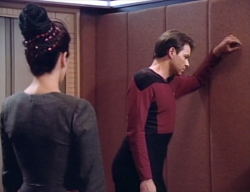I’m examining the impact Star Trek: The Next Generation had on my formation. The introduction to this series can be seen here.
When the Enterprise stumbles on to a group of renegade Klingons, Worf is confronted with the heritage he has been distanced from.
The episode opens with an experiment: the bridge crew gets access to what Geordi sees through his Visor, thanks to a technological gizmo that he and Data concoct. They marvel at the beauty and extraordinariness of the images, and at Geordi’s ability to sort the information (which is compared to a hearing person’s ability to sort through voices in a crowded room). While Geordi’s blindness is a difference that the bridge crew often engages, it’s also a difference that brings additional resources to them without demanding much of any adaptation on their part. There is little to no discomfort or stretching required from those around Geordi.
Worf, however, asks his colleagues to move significantly outside their comfort zone in this story. We learn here that he has not lived among Klingons since he was very young, and has been almost entirely immersed in human culture. Whatever sense of tension he felt before between his Klingon self and his human environment, it is intensified by this, our first introduction to Klingon culture. We learn there are Klingons that object to the new alliance with the Federation (much lauded in Starfleet), and some of these free Klingons encourage Worf to rediscover the wildness he has tamed to live peaceably with humans.
Apparently, Klingon culture is a complete unknown to most of the crew. After Worf partakes in a brief death ritual with the renegades for a fallen comrade, Data explains its significance to an aghast Picard and Riker. Picard even comments that he didn’t recognize Worf anymore; only a small move into Klingon “space†makes him unrecognizable to shipmates. The rest of the crew is quick to question his loyalties, as they also misunderstand Klingon culture (for example, leaping to the assumption that a stray child will be taken as a hostage, which would not be considered honorable or appropriate to the Klingons, even during desperate moments).
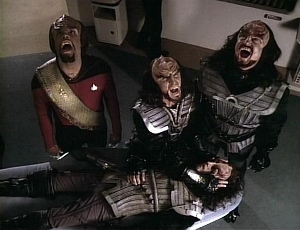 Eventually, Worf finds that the renegades’ philosophy is too extreme for him. Once he begins to integrate these new experiences of what it means to be Klingon into the values he’s carried with him already, he tells them they are looking for battles in the wrong place, and describes the internal struggle to embody honor, duty and loyalty. By the end of the episode they have given their lives in a battle they’ve created rather than assimilate to the peace of the new alliance.
Eventually, Worf finds that the renegades’ philosophy is too extreme for him. Once he begins to integrate these new experiences of what it means to be Klingon into the values he’s carried with him already, he tells them they are looking for battles in the wrong place, and describes the internal struggle to embody honor, duty and loyalty. By the end of the episode they have given their lives in a battle they’ve created rather than assimilate to the peace of the new alliance.
There are later episodes where Worf’s friends are more supportive and embracing of his Klingon culture. But it is the raw honesty and complex tension of this episode that is compelling to me right now. It is a sympathetic, respectful portrayal of Klingon culture given by the storytellers, but Worf’s friends, whom we as viewers respect, don’t yet understand. I debated writing this post as well, since at the time, I noticed none of this. I was on the verge of boredom, as Klingon culture didn’t appeal to 13-year old me much. But, I still absorbed the story, and was absorbed by it. And I wonder how watching Worf in that place of tension between two starkly contrasted cultures really affected me. I’d like to think it made me feel less alone, on some deeper level, when I eventually reached toward being in this world, but not of it.
Note on the episode: I don’t know how intentional they were in this thematic tie-in, but in this episode focusing on difference, they finally mention the hostile-but-tangential race that becomes the primary enemy of the series: The Romulans.
